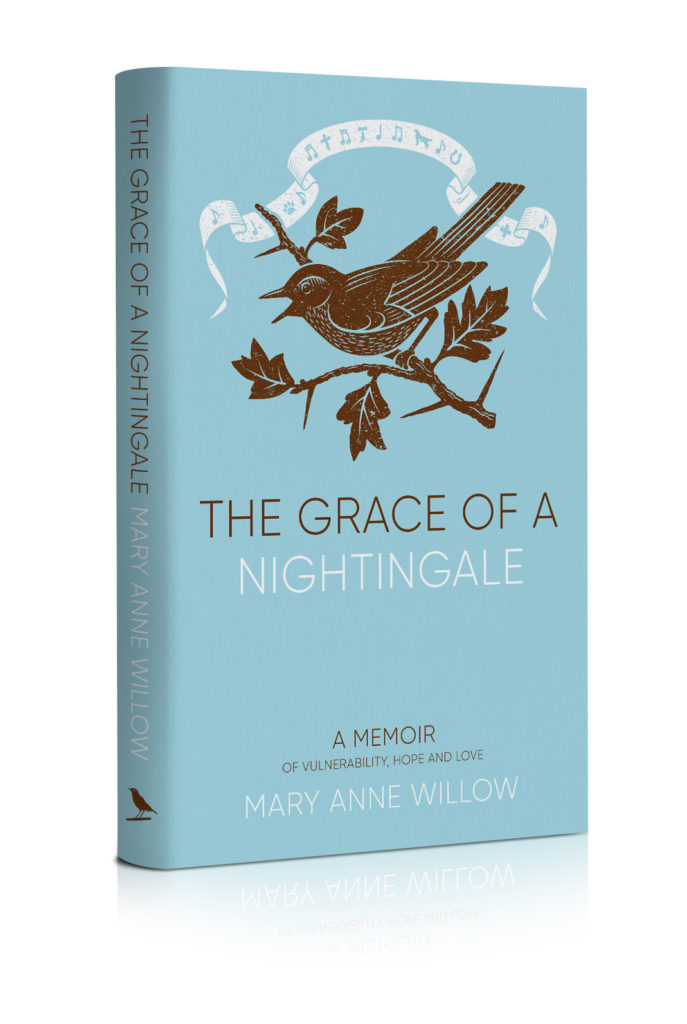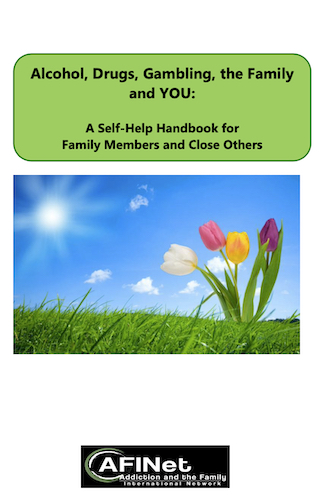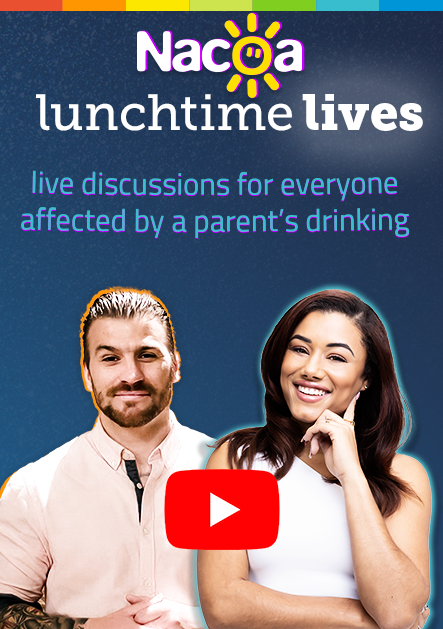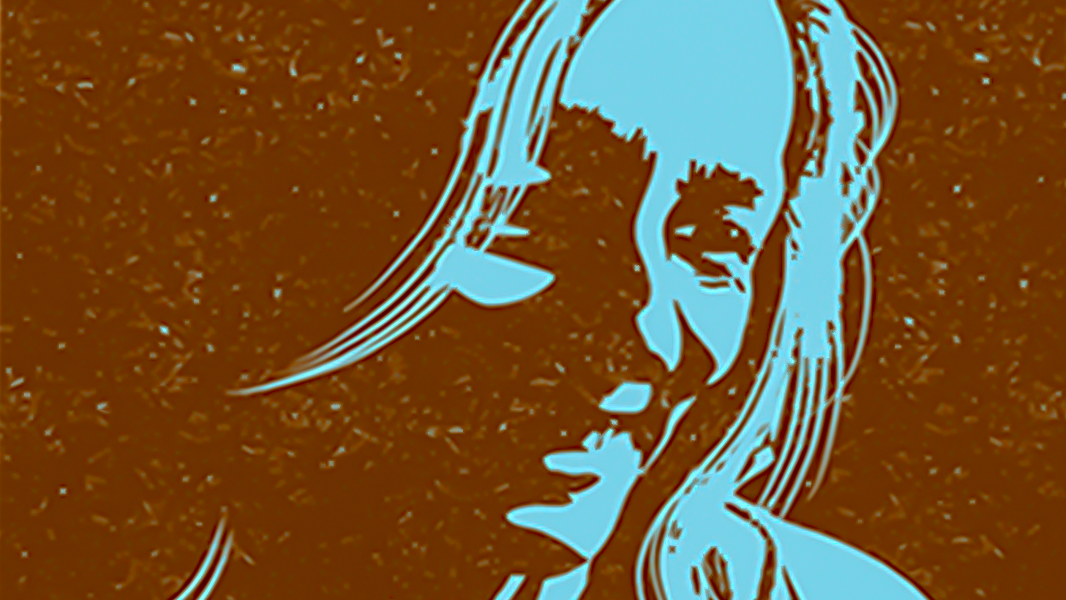
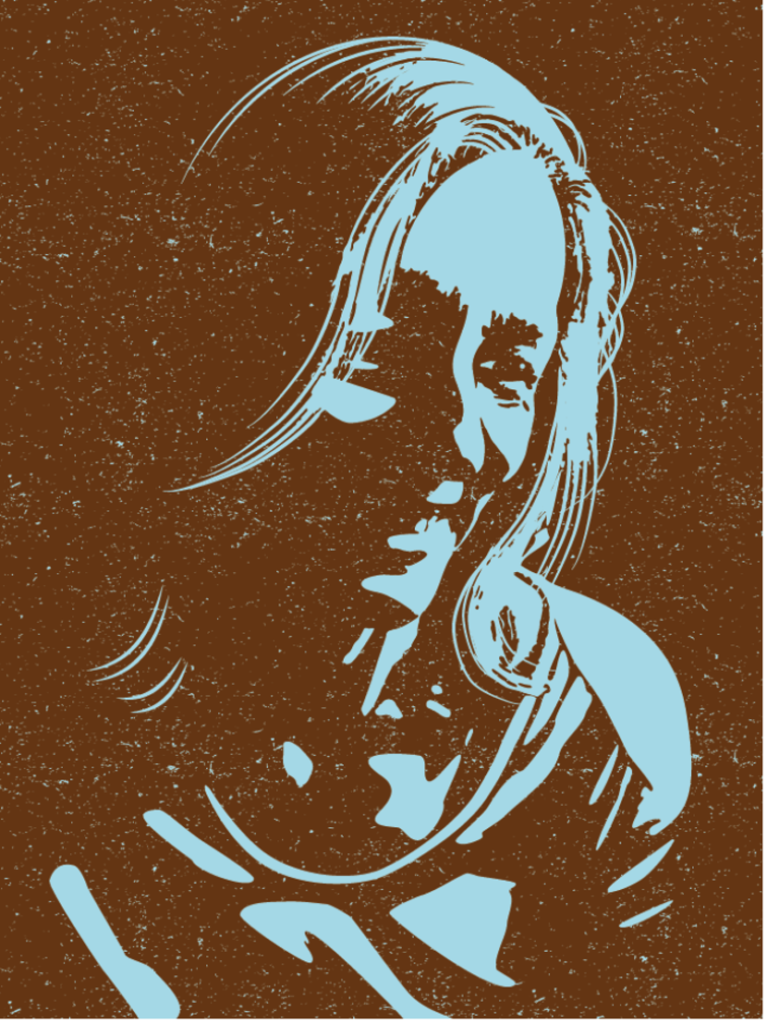
The grace of a nightingale
Earliest childhood memories
What is your earliest childhood memory? When you are asked this question, what images come alive from a hidden place deep within your mind?
I was 3 years old and watching my father, like a deranged baboon, beating my mother with one of her pink fluffy wedge slippers. Terrified, I clung to my 18-month-old brother Lee, as Mum crawled away from this animal. My last glimpse of her was on the staircase dragging herself to a place of safety. It seemed like many sullen days went by until I saw her again, sitting up in bed, battered, bruised and desolate.
Identity
This experience shaped my identity, shackling me with emotional responsibility for my baby brother and casting me as mediator between my warring parents.
Mum and dad
Mum was a small lady, only 5 feet tall, with blazing red hair. She adopted the role of tormentor, Dad’s tormentor. Dad was distant and emotionally remote, and the only attention my mother received from him was brutal. She would provoke him through nagging, uncooperative selfishness.
Food would be deliberately burnt and mealtimes were frequently the scene of arguments and fighting. Dad was huge, 6 feet 2 inches tall, with black hair and massive spade-like hands. He would respond by lashing out, followed by the inevitable guilt, a slow steady trickle of remorse, making Mum feel powerful and victorious. This toxic pattern of abuse would continue until my father’s death in 1997.
An insufficient childhood
Far from a loving, nurturing atmosphere full of fun and playful creativity, our home was tense, hostile and threatening. I was always on the alert during the quiet times, when the calm felt brittle and delicate. War could break out at any moment, creating chaos and turbulence, smashing our fragile family wide open into raw pieces of misery.
Trenches of hate seem to have buried many of my memories. There are very few to recall. Did I ever play? Did I have Christmas and birthday celebrations? Did I have friends? Was I ever happy and carefree? Did I skip or sing or laugh? Who did I turn to for safety, consolation and affirmation? Who loved me? I struggle to find images to answer these questions.
Night time comfort came in the form of a pink woollen blanket with a pink satin border. Safe in the refuge of my bedroom, my faithful blanket embraced me as I lay in bed. I would pick off tiny balls of wool, rolling them between my fingers. Then, before drifting off to sleep, I would swallow them to avoid any reproach from my parents.
Addiction, self-neglect and denial
When I was about eleven years old, Mum began to drink. First, it was cider, then beer, and then spirits. Whisky and Pernod were her favourites.
Dad didn’t seem to care, or perhaps he was in denial. He loved to spend time on outdoor pursuits with my brother: shooting, camping and fishing.
Mum’s dependency and abuse of alcohol increased to the point she was completely indifferent to its harmful physical and mental effects. She was consuming large quantities of whisky and couldn’t dress herself in the morning until she had her first fix of alcohol, as her hands would shake uncontrollably. Cupboards, drawers, even the toilet cistern, were used as hiding places for bottles of Teacher’s whisky.
She would cunningly empty small amounts into a range of little bottles and then plant them in obvious places. These served as a decoy to fool the rummager into thinking they had succeeded when the more precious and much needed larger supplies were hidden further away in the depths of her secret hiding places. She would lie, steal and fight as though her life depended on this foul smelling brown liquid. Even today, forty years later, I cannot abide the smell of whisky.
Mum often became violent and uncontrollable until she became unconscious from drink. She was slowly killing herself through alcohol, cigarettes, and self-neglect. She was a deeply unhappy and lonely woman whose life was slowly diminishing into an underworld of blackouts and self-harm.
We became used to the police arriving at our door. Once she was arrested in the local supermarket for stealing two large bottles of whisky. On another occasion, she hit a bus while driving and then failed to stop. It was not unusual for her to be forcibly removed to the local psychiatric hospital, not to be seen for several days.
Neighbours would knock on the door to report her slumped in the street. It was heartbreaking to find her lying there sobbing, smeared with dirt and crusts of blood, incontinent, bruised and grazed. I tried to help her, taking her home to be bathed, fed and put to bed.
I can’t recall anyone offering to help her. Where were her Good Samaritans? Our neighbours were distant and unwilling to be associated with our chaos and Mum’s misery. This only deepened my shame and dejection. I learned that there is a fear of those who suffer.
Shared anger, rage and shame
I rarely invited friends home. It was too volatile, dangerous and embarrassing. Mealtimes were bedlam, as Mum would use them as an opportunity to create chaos. Irrational and paranoid arguments would erupt from nowhere. Cutlery, crockery and even food would be used as weapons by this frenzied drunken woman. It was not unusual to have a fork jabbed into the back of your hand or a plate of food land in your face.
I experienced a bewildering range of emotions towards Mum. I could feel pity, fear, rage and love towards her all in one day. I missed my mum and yet I also bitterly resented her. She was a mother and wife who had become seriously ill due to alcohol dependency. The trigger may have been the disappointment of her toxic, abusive relationship with my dad, which left her feeling unlovable and despised. Her life was filled with unbearable pain and suffering, alleviated by the hypnotic, stupefying effects of alcohol.
Passivity
When mum was violent towards me I never fought back. I never tried to retaliate. Why was I so passive against the onslaught of violence and abuse? Why was I so tolerant? I could easily have restrained Mum and avoided being hit, but I never did. Part of me loved her, and she was my mum. Despite my rage and disgust, I never directed these emotions towards her, but approached her in a spirit of mediation and genuine concern.
Wild and wayward
I started to become disengaged at school. My thoughts and emotions were scrambled as I struggled with anger, shame and guilt. This toxic cocktail was secretly bubbling away, and I needed help. Home was horrid. Mum was a sick and vicious drunk. Dad was violent and emotionally distant. During lessons, I struggled to concentrate and it was inconceivable to undertake any homework due to the madness at home. I was distracted and tired. I was disruptive in class and desperate for mischief. Anything, which enabled me to avoid applying myself, was appealing. Detention was a frequent blessing, providing a welcome delay from returning home.
Was I wild or disturbed or both? I certainly had problems integrating into the classroom group. I had difficulty in establishing relationships with my classmates. Moreover, I was unwilling to communicate amicably with my teachers most of the time.
No one in authority seemed to notice my deteriorating behaviour. If they did, why didn’t they act? Did any of the teaching staff suspect anything detrimental was happening to me? Why was I failing to achieve? Were there any mitigating circumstances which would explain my academic decline, as I switched from achieving high grades to producing no work at all? Was my diminishing performance so insidious it was unnoticeable? Were the teachers so consumed by their workload that I was invisible? Perhaps they had labelled me a disaffected, disengaged teenager whose only prospect for employment would be in one of the many local factories.
Truancy became appealing. I had several legitimate reasons, all of which rationalised my absence from school. I was constantly tired. Sleep was disturbed and troublesome. I was frequently battered, bruised and sore, making sitting on hard school chairs even more uncomfortable. I was unable to do my homework and too ashamed to explain why to the teachers. I avoided facing their annoyance and merrily skipped lessons.
I dreaded parents’ evening. Mum arriving in her dishevelled, drunken state was not an option, and neither was Dad and his volatile outbursts of rage. So I faked letters, letters which lied about my absence from school and my parents’ absence from parents’ evening.
Life at home remained chaotic and miserable. Mum was her usual drunken disturbed self. She would crash around the house looking for a fight, reeking of whisky, chain-smoking, irrational and psychotic. In my bedroom, I had an old wingbacked chair that I used to barricade myself in with as a protection against her tyranny.
I would wedge the top of it under the door handle, blocking any attempt to get into my room. This would shield me from any physical violence but not from the torment of her constant emotional terrorism. Eventually, she would exhaust herself in the search for a fight and collapse in a stupor. There was solace in her alcohol-induced world away from the pain of reality.
Escape
Mum was still drinking heavily and was constantly in trouble with the police. She was in and out of the local psychiatric hospital. Dad was bad tempered and violent.
It was during one of these chaotic nights I decided I was going to crawl out of this gutter of despair and find a trail of escape.
I devised an escape plan from home, which was to try and obtain some ‘O Levels’ (I resisted more immediate alternatives such as factory working and prostitution). It began with a punishing study schedule, starting at 4.30am each day when the house was safe and everyone was asleep. There was no fighting and no bullying. I snatched a few hours to study, calmly nestled in the tranquility of dawn. I was able to apply myself to my schoolwork. I could concentrate without fear of being attacked.
I must have attempted about twenty O Levels in total. I had endless grade Ds and Es and then eventually I reached my target of five passes: four grade Cs and one grade B.
The healing power of love
Mum was finally admitted to a pioneering residential centre for the treatment of alcohol addiction. She didn’t have to suffer the degrading incarceration of the psychiatric ward, but was looked after in a sixteen bed inpatient clinic purpose-built to provide medically assisted detoxification and psychosocial interventions. It was newly built with light and spacious rooms and a warm and welcoming atmosphere. Above all, it had a compassionate culture.
Broken and disturbed, Mum voluntarily went into this unit where she spent the next few months. I only remember visiting her once. I didn’t want to see her. I was ashamed and deeply skeptical she would ever relinquish her lust for alcohol. I silently ranted and raged as my soul cried out for the love she had not been able to give me. She’d neglected me, humiliated me and failed to protect me when I was vulnerable.
I couldn’t and wouldn’t trust her. She had told too many lies. She was a possessed psychotic vixen, cunning, cruel and selfish. I was so angry, and I hated her. Mum’s emotional poverty had wounded both of us, and we both needed healing. I continued to lament my aberrant childhood. The whole family had suffered the damaging indignities of this debilitating disease.
Some years later I asked Mum what it was that had enabled her to find the motivation to defeat her addiction to alcohol when her life was so chaotic. Everything around her was still the same. Dad was still Dad, emotionally unavailable and self-absorbed. Both her parents were now dead, and she had no siblings to turn to. Our home was still a squalid mess: shabby, soiled carpets, torn and damaged furnishings, broken and cracked crockery – all symbolic of the state of our family.
Surrender
Mum had willingly surrendered her shrewish character for a journey of tender healing. What gave her courage to withstand the agony of withdrawal from her crutch whisky? It was love. Loving care crept into her life from the kindness of strangers. It came from the nurses and doctors in the addiction unit.
Mum explained how she felt genuinely cared for, loved and respected by these people. Her healing came from the willingness of others to help her, as in the parable of the Good Samaritan. She sensed they believed in her worthiness, her integrity and her authenticity. Her past lies and failings didn’t matter. The staff did not judge her. They acknowledged she had a genuine illness, which needed healing not condemnation. There was no shame and no blame, only love.
Coping with the intimate demands of caring for the sick would require love, grace and a self-giving humility. The humility of a self-knowledge grounded in truth, patience with others, simplicity of life, attentive listening to others, courage to overcome difficulties and a compassionate heart.
St Bonaventure, cited by Ilia Delio in The Humility of God
Experience Teaches – It is the only authentic teacher
I came to realise how caring for Mum taught me tolerance and compassion, while others offered only prejudice and indifference. With my five O levels I applied to become a student nurse. Three years later I became a Registered General Nurse.
I went on to work in some of the most prestigious hospitals across England working beside some of the world’s best surgeons, nurses, physiotherapists and pharmacists. I met princesses and politicians, dukes and prime ministers.
I always strived to reach my full nursing and academic potential achieving a distinction in a master of arts degree in Leadership and Management and became a senior university lecturer.
Mary Anne Willow
Find Mary Anne’s book The Grace of a Nightingale by tapping here.
